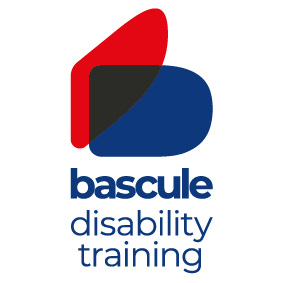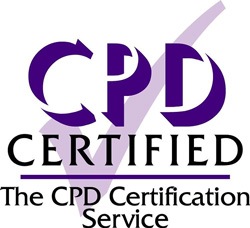Reasonable (and Unreasonable) Adjustments in the Workplace

There’s a question I’m often asked in training, one that many people are curious about, but for obvious reasons, are always a little hesitant to ask.
“When does a reasonable adjustment become unreasonable?”
Now obviously, this is an important question that should be answered very carefully, as every scenario is unique, and the refusal to make a adjustment for staff with a disability can be considered discriminatory under the Equality Act 2010, and therefore, could land an organisation in a lot of hot water! Essentially, the Equality Act 2010 exists to protect people from discrimination, and so employers have a duty to make reasonable adjustments to ensure people with disabilities can access jobs, education, and services.
But, how do we define reasonable, or rather at what point do requests become unreasonable?
Is there a defined line? And if not, how can we be sure we are legally able to reject a person’s request for adjustment? Before we explore those questions- let’s take a moment to break down exactly what a reasonable adjustment is:
Defining ‘Reasonable Adjustment’
In short, a reasonable adjustment is a change (or changes) that an employer makes to remove or ease a disadvantage related to someone's disability. This can be a whole host of different actions, but some of the more common may include:
- Changing office equipment –For example, providing a chair suitable for a physical impairment, or changing a sitting desk to a standing one.
- Making physical or structural changes to the workplace environment- Such as adding grab rails in toilets or installing automatic doors
- Changing working arrangements – For example, offering flexible working hours and start times, or hybrid positions, that offer office/home workplace flexibility.
- Other modifications can include services or support, such as slightly extended rest breaks, or things like a new desk chair with back support, assistive software, hardware or items like noise cancelling headphones, screen readers or ergonomic keyboards.
Fundamentally, a reasonable adjustment can generally be a request to consider assistance that can help to remove the disadvantages caused by a disability.
Employers must make reasonable adjustments when they are aware of (or could reasonably be expected to know), that someone that works for them has a disability. They are also expected to make (or consider) reasonable adjustments if a new job applicant asks for adjustments either at the start or during their employment.
It’s always important to remember that reasonable adjustment isn’t just about the staff you currently employ with a disability, it can also be needed at any time in a staff member’s employment pathway. Also, as people’s needs change so does the reasonable adjustment required, it is not always a one time or static change.
When a request for an adjustment is ‘Unreasonable’
The main aspect to remember when reviewing a request for a reasonable adjustment, is that you have strong grounds to reject that request if it generally has a major negative impact on the operations of your business. Here are several different instances of that:
If the cost is excessive vs the turnover of the business
EXAMPLE – If a small café with an annual turnover of £160,000 is asked to fund a £35,000 state-of-the-art wheelchair lift system, that request is clearly beyond the means of the business, and would not be considered a reasonable request.
If the request is unfeasible
EXAMPLE: A new employee with a disability that impacts their mobility, begins a job in offices that are Grade II listed, and then asks if structural changes can be performed. This request could be considered unfeasible. These buildings are protected and therefore, it is illegal to make structural changes.
If the request is beyond job requirements:
EXAMPLE: A person with ADHD and related sleep disorders, who works in a bank and requests later start times. They also want to keep their same position and salary. This is beyond requirements as the position they held requires the opening of the outlet at a set opening time and staff are needed to be present.
If the request causes disruption to business:
EXAMPLE: A sales staff member working shifts in a call centre asks to work mornings only, however the afternoon shift is where 80% of sales are taken. This would mean the business would struggle meeting customer demand and employing the salesperson at a time when they are quietest, would impact the bottom line.
If there has been a failure to explore alternative solutions
A person with a physical disability asks for a particular ergonomic chair, that is £7k – and wants this chair only, with no exceptions. This adjustment can be refused on the grounds that alternatives have not been considered.

Other areas to be aware of are…
If an employer has no knowledge of the employee’s disability, and there are no signs, they may have a strong defence if that employee claims discrimination as no adjustments were provided.
Take for example an office worker with ongoing depression who has never disclosed their disability. If they have not disclosed, and never requested support, and have never demonstrated behaviour that would indicate they have a disability, the employer can claim that they could not reasonably have known.
However, it is important to remember that the moment that an employee raises the issue, or the employee demonstrates clear behaviours that exemplify that they have a disability, the duty to adjust can occur immediately.
Another area to consider is when the person does not meet the legal definition of being disabled. Here the request for making reasonable adjustments can be considered unreasonable or denied. An example of this might be that a person breaks their leg in a football match and requests a particular type of chair, and rails be added to their workstation in a particular area of an office. A broken leg is a temporary injury and therefore, is not considered to be a disability under the Equality Act 2010, which states that a disability is defined by an impairment that is is long term, meaning it lasts 12 months or more.
IMPORTANT –Always Offer Alternative Solutions
Probably the most important thing to remember when adjustments are deemed unreasonable, is that there is nearly always some kind of alternative solution or compromise that can be offered.
Take for example, all of the scenarios above. The small café could potentially explore a role, or duties that means the person does not need to go upstairs, (grants like Access to Work could also be considered for higher cost structural changes), the Grade II listed building worker could look at relocating the employee’s desk to the ground floor, and reconfiguring space or offering home working. Job share could be explored for the bank worker with ADHD, role allocation in a different team could be offered, or you could refer to Occupational Health (OH) to gain a better understanding of the individual’s health and needs. For the sales worker, shorter afternoon shifts could be considered to combat fatigue, or a one -on -one -off balance could be explored or trailed. For the ergonomic chair- NHS approved mid ranged chairs could instead be trialled – and again Access to Work grants could be explored.
The key thing to remember is that the outright dismissal of a request for adjustment does not look good in a tribunal and will also not help either party in trying to improve performance, wellbeing and general morale. Instead- have open dialogue, make the process of requesting adjustments simple and non-confrontational. And, always explore the alternatives if the adjustment falls into the category of unreasonable.
You could try appointing an Occupational Health consultant to explore how best to progress reasonably, but remember to document every step of the journey, collecting all of the evidence to demonstrate that you have made every feasible effort to support the person you employ, within reason.
Remember also that the point of adjustments is to allow people to bring their best performing selves to work and higher productivity is better for your business.
CHRIS JAY – MANAGING DIRECTOR- BASCULE DISABILITY TRAINING



